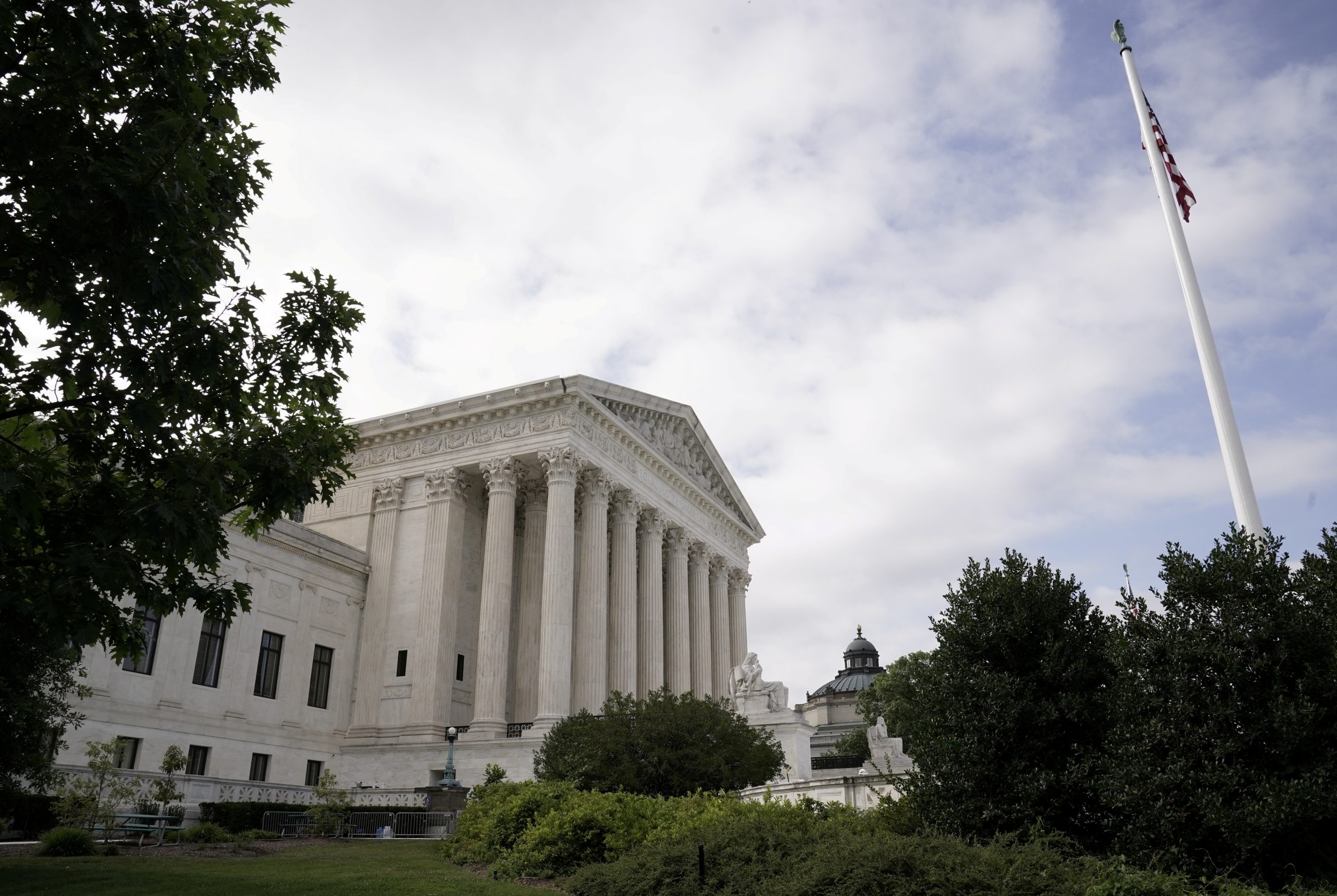
Lauren Moye, FISM NEWS
[elfsight_social_share_buttons id=”1″]
The Supreme Court justices wore their traditional black robes and took their places in the grand courtroom earlier today for the first time since March 2020. Prior to today, they had been meeting virtually for more than a year due to the pandemic.
Justice Brett Kavanaugh, who tested positive for COVID-19, remained virtual for this opening session.
A small group of Christians gathered in front of the Supreme Court building to pray and worship while the Supreme Court opened its new session.
On Sunday, a coalition of pro-life organizations and individuals met for an event called “Pray to End Abortion” throughout the country. These events illustrate the importance to Christians about upcoming Supreme Court decisions on controversial cases involving abortion and religious liberty over the next nine months.
The first high-stakes case, “New York State Rifle & Pistol Association vs. New York,” will be heard on Nov. 3. The association challenges New York’s restrictive concealed carry license that requires applicants to show special cause to need protection outside of the home. If the association wins its appeal at the Supreme Court level, it will advance Second Amendment protections for citizens in the state.
On Dec. 1, the Court will hear “Dobbs vs. Jackson Women’s Health Organization.” This case has the potential to reinstate Mississippi’s “Gestational Age Act,” which prohibits abortions after 15-weeks with the exception of rape or incest. The law had subsequently been denied by two different federal courts.
This case could also hold weight for the recently passed Texas’ heartbeat bill, which protects the life of unborn children once a heartbeat can be detected. The Court had previously denied an emergency hearing on the case allowing the bill to go into law on Sept. 1.
Two other high-profile cases on the docket involve religious freedom and religious discrimination.
The first of these will be heard on Dec. 8. “Carson vs. Makin” involves a Maine dispute over whether religious schools can take taxpayer money, in this case for a tuition assistance program, to fund religious education. Three sets of parents filed the complaint against the state of Maine saying that blocking their tax money from going towards private education is a violation of their freedom of religion.
Early next year, the Supreme Court also plans to hear “Shurtleff vs. Boston,” which involves allegations that first amendment rights were denied when the city of Boston refused to allow Camp Constitution to fly a Christian flag on the third flagpole in front of City Hall. The city of Boston has allowed other controversial flags to fly in the past, including a pro-LGBT and a Chinese flag. In light of this, the Christian organization is appealing the city’s decision to discriminate against on the ground of religion.
Other important course cases on the docket include “U.S. vs. Tsarnaev” which will hear the Biden administration’s argument to reinstate the death penalty for Boston Marathon Bomber Dzokhar Tsarnaev, and “Federal Election Commission vs. Ted Cruz for Senate” which challenges a finance law that caps reimbursement of personal loans to political campaigns.
The number of important cases that will be heard during the 2021-2022 session has drawn criticism from the media and other organizations, with some on the left even alleging that the six justices appointed by Republican presidents are acting as “partisan hacks.”
Pro-abortion organizations are also pressuring the Supreme Court to uphold Roe vs. Wade. Julie Rikelman of the Center for Reproductive Rights wrote, “Unless the Court is to be perceived as representing nothing more than the preferences of its current membership, it is critical that judicial protection hold firm absent the most dramatic and unexpected changes in law or fact.”
The criticism has prompted some justices to respond with rare public remarks.
Associate Justice Amy Coney Barret said on Sept. 12 in a speech that the Supreme Court “is not comprised of a bunch of partisan hacks” but that justices are instead driven by different “judicial philosophies.”
Meanwhile, Samuel Alito challenged the media’s use of the phrase “shadow docket” during a Sept. 30 Notre Dame speech as being used “to portray the court as having been captured by a dangerous cabal that resorts to sneaky and improper methods to get its way. And this portrayal feeds unprecedented efforts to intimidate the court or damage it as an independent institution.”
The Supreme Court will allow lawyers, court staff, and journalists to attend without a vaccine requirement. However, the court is not yet open to public attendance.
